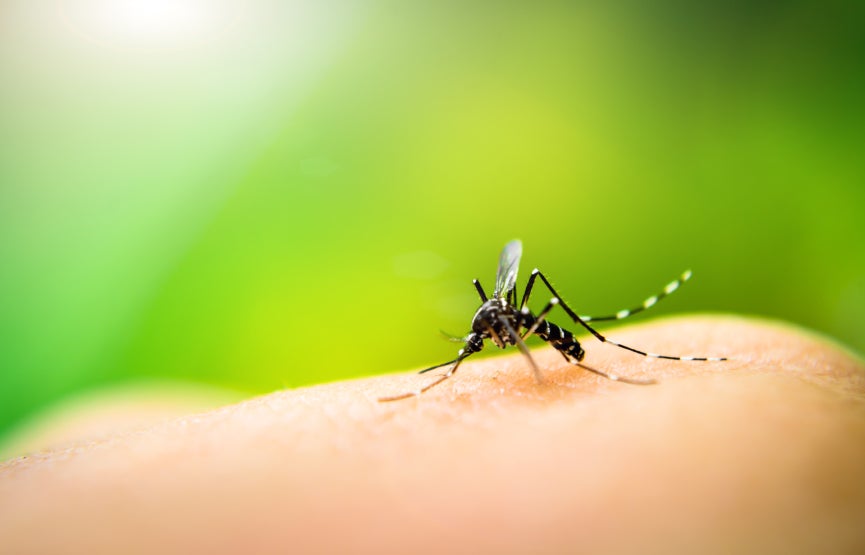Concern continues to build as The Centers for Disease Control and Prevention (CDC) released a recent report that more than 300 people in the United States have contracted the Zika virus, 31 of those being pregnant women. The majority of cases are travel-associated cases with only locally acquired cases in Puerto Rico, U.S. Virgin Islands and American Samoa. The New Mexico Department of Health (NMDOH) reports one case of a 46-year-old Bernalillo County man who contracted Zika while traveling in Central America. Public health officials encourage everyone to take measures to help protect themselves and their families from mosquito bites and to be aware of the risk of spreading the Zika virus.
While no local mosquito-borne Zika virus has been reported in the U.S, health officials remind New Mexicans to also remain aware of the West Nile virus, which is carried by mosquitoes native to our area. To prevent mosquito bites, you should wear lose clothing when outside, use EPA-approved insect repellent containing DEET (up to 30 percent) when you are outside, avoid going outside in the early morning and evening hours, and remove any standing water around your home and neighborhood. Click here for more information from the CDC.
Travel should be avoided to areas affected by the Zika outbreak – Africa, Southeast Asia, South America, Puerto Rico, the U.S. Virgin Islands and the Pacific Islands. For healthy children and adults who contract the Zika virus, it is most often a mild illness. In fact, only one out of five people infected with the Zika virus will become ill. Fever, rash and joint pain are the most common symptoms. Zika can be transmitted via sexual contact, as reported in one case in Texas. Sexual intercourse and sexual activity should be avoided with men traveling from affected areas. Women who have sexual contact with an infected man are of special concern if they are pregnant or become pregnant shortly thereafter.
Findings published in the New England Journal of Medicine find that there is a causal relationship between the Zika virus and microcephaly. This is the first causal link between a mosquito bite and a brain malformation. Children with microcephaly suffer from intellectual disabilities, developmental delays, hearing and vision difficulties, as well as many other problems.
Health officials urge women who are pregnant or planning on becoming pregnant to avoid travel to areas affected by the current Zika outbreak. All pregnant women who have traveled to these areas should talk to their health care provider about testing, even in the absence of symptoms.
If you have any questions about your risk or exposure to someone infected with the Zika virus, contact your health care provider or call the New Mexico Department of Health at 505-827-0006.

